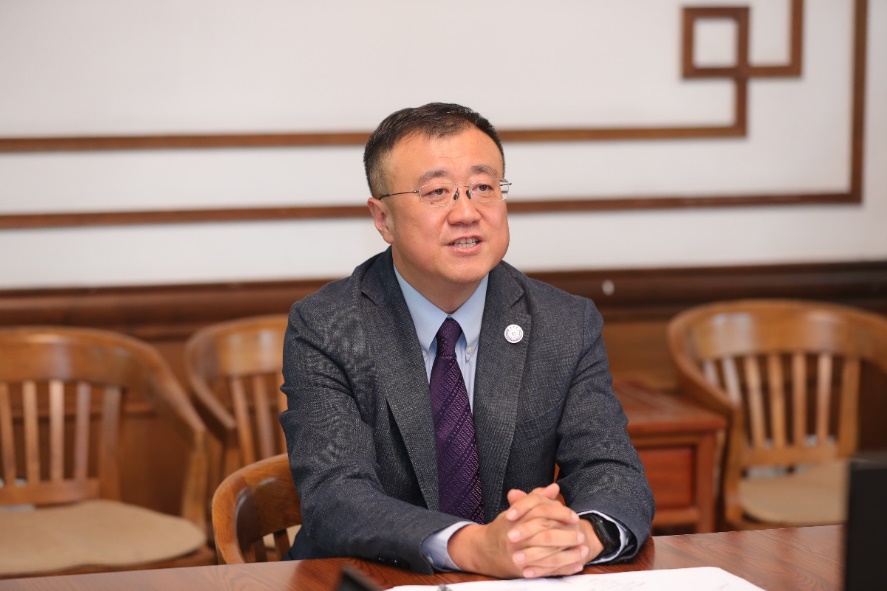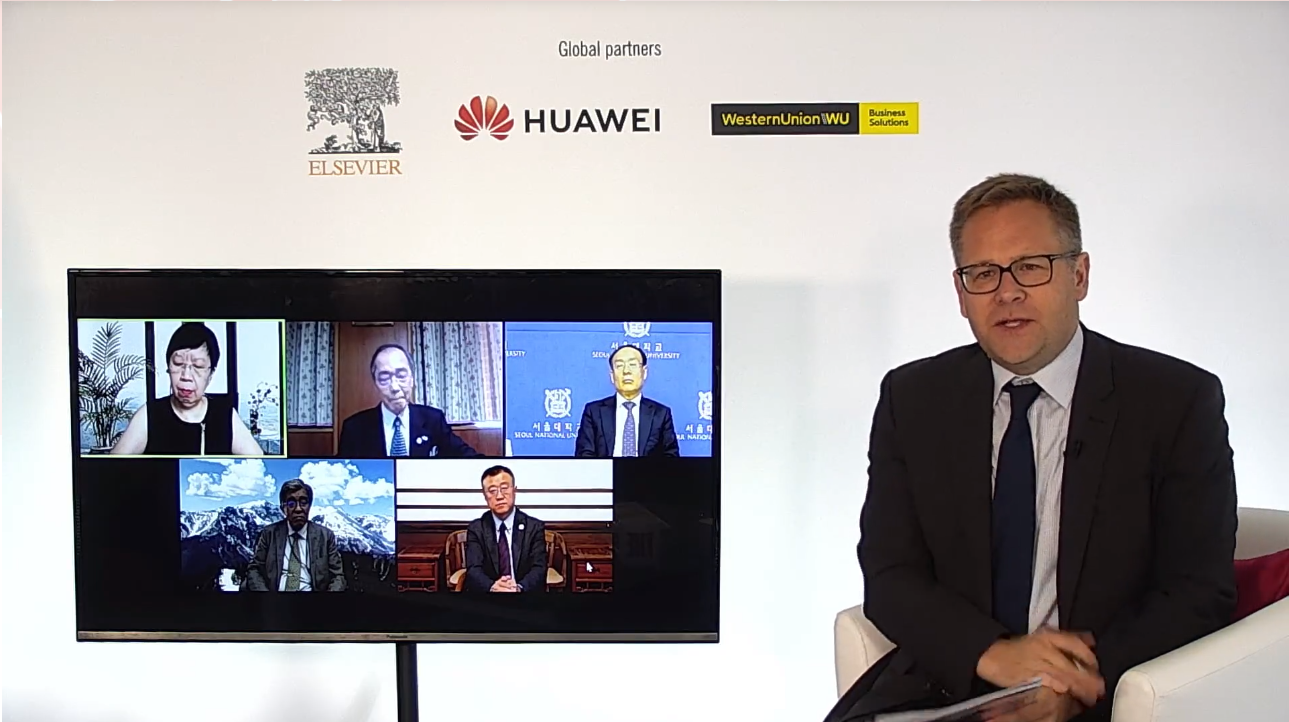Tsinghua University Vice President and Provost Yang Bin shared Tsinghua’s experience in collaboratively nurturing creativity and innovation at the Times Higher Education (THE) Asia Universities Summit 2021, which commenced on June 1.
 Prof Yang Bin addresses the Summit. Photographer: Li Pai
Prof Yang Bin addresses the Summit. Photographer: Li Pai
The three-day virtual Summit is taking place in partnership with Fujita Health University in Japan, under the theme of “Crossing Boundaries, Unlocking Creativity.” It brings together top university and industry leaders from around the world to exchange experiences and views in areas of research and innovation collaboration to address common challenges.
Speaking at the Summit’s panel discussion titled “How should universities work together to nurture creativity and innovation?” Yang Bin said that universities should serve local and global communities by breaking through physical boundaries, disciplinary barriers and technological limitations.
To Tsinghua, nurturing innovation meant finding ways to support global competitiveness – both as educators and as partners of government, international organizations and industry, he added.
Yang Bin highlighted the Global Innovation Exchange Institute (GIX), a global collaboration among Tsinghua, Microsoft and the University of Washington launched in 2017, as a case in point in Tsinghua’s efforts to instill greater creative fluency and problem-solving skills in its students through international collaboration.
“Featuring model learning and real-world application, GIX is a center for innovation where students, scholars and entrepreneurs around the world interact in a project-based learning and research environment to develop leaders in innovation who work collaboratively to solve real challenges,” he added.
The vice president and provost explained that Tsinghua had been carrying out various initiatives like GIX as part of its Global Strategy to foster innovative talents with global competence, to serve China and the world through research, and to strengthen its institutional competitiveness and global impact.
Stating that AI and related disciplines have emerged as a key priority for innovative education models, Yang Bin also introduced AI-related initiatives launched by Tsinghua, including the Laboratory for AI, and the Tsinghua Laboratory of Brain and Intelligence.
“Examples like these translate into greater opportunities and responsibilities for universities and students alike,” he said. “Aligning the efforts among global partners, these programs lead in the push for change that will have a positive impact in the world.”
He also mentioned that as a leading university of China, Tsinghua has been extensively collaborating with domestic universities, such as Qinghai University, to bring more balance across the national education landscape.
Yang Bin was joined by four other fellow panelists at the Summit: President of Singapore Management University Lily Kong; President of Nagoya University Seiichi Matsuo; President of Seoul National University Oh Se-jung; and, Executive Vice President of Kyoto University Tokitoh Norihiro.

The speakers shared their views on the most effective forms of educational models and institutional partnerships to support fundamental research and greater collaboration.
Phil Baty, chief knowledge officer, THE, moderated the panel.
Writer: Sangeet Sangroula
Editors: Li Han, John Paul



